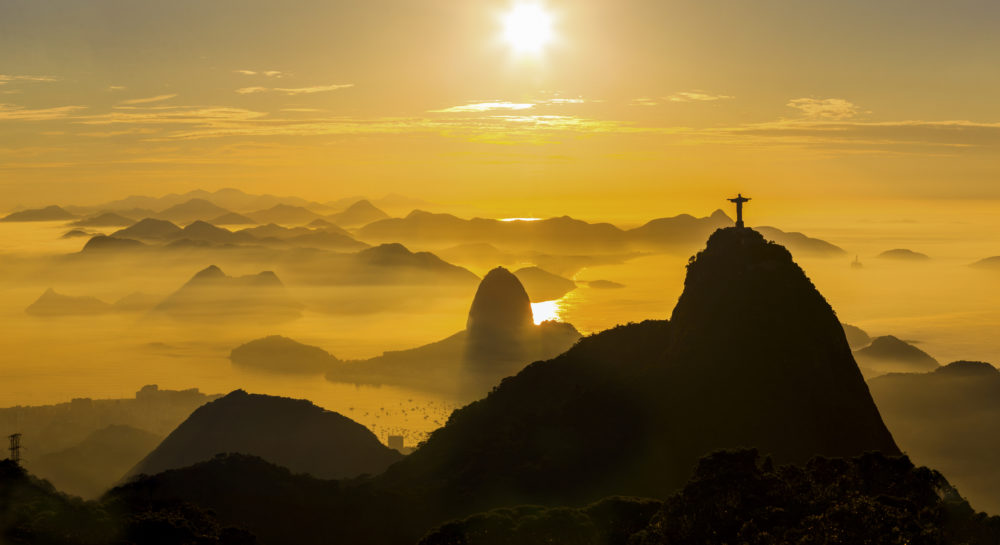Fires that raged in the Amazonian rainforest this year are doing more than destroying habitats and melting glaciers: they’re causing investors and companies to rethink strategies in the country and in some cases abandon business initiatives.
Rainforest destruction and the policies of President Jair Bolsonaro, who has said environmental rules are suffocating the country, are boosting political risks and threatening future investments. Among those heeding the call this year, Nordea Asset Management halted purchases of Brazilian sovereign debt, while clothing retailers H&M and VF Corp. stopped buying cattle hides from the country because of concerns about illegal clearing of land for cattle.
As fires raged this summer, French President Emmanuel Macron helped focus the world’s attention on the disaster when he tweeted “Our house is burning” ahead of a G-7 summit, and called for global action to force Brazil’s government to save the forests. Subsequent moves by asset managers and companies to limit the risk of doing business with the Brazilian government or companies are seen as pressuring Bolsonaro, who favors opening the rainforest to development.
The surge in fires — many set intentionally — is fueling an increased pace of deforestation, which can have a worldwide impact. The Amazon basin’s forest sucks up as much as a quarter of all the carbon emissions absorbed by the world’s trees, making it one of the bulwarks against climate change. Tree clearance reached an 11-year high in the 12 months to July 2019, according to the country’s space agency.
However, the Financial Times points out the limits to what boycotting can achieve. Most deforestation is the work of criminal groups, with the cleared land then used by small ranchers or wildcat miners that are below the radar of international investors, the paper says.
Even so, calls for boycotts are increasing. Councilmembers in Los Angeles and New York City last month proposed legislation that would have the municipalities cut ties with businesses linked to the wildfires. A Harvard student group, Divest Harvard, are calling for the school to sell its Brazilian land holdings.
Ricardo Sales, Brazil’s environment minister, told Sky News this week that the international community shouldn’t “point fingers,” saying that nations who grew rich “because they’ve destroyed the environment” should help Brazil through financial support. He is in Madrid at a United Nations conference on climate change, where he wants to secure funds for his country.
- The Amazonian fires are releasing particles that are causing the Andean glaciers to melt at a faster pace, according to a study in Nature. The study shows that the fires could be a threat to water supplies not only in South America, but worldwide.
- Balsonaro, oddly, last month blamed actor Leonardo DiCaprio for fueling the Amazonian fires through his charity work. DiCaprio’s environmental organization Earth Alliance has pledged $5 million to help protect the Amazon, a move that apparently caused the Brazilian president’s comments.
- Surging worldwide demand for beef has created an incentive for unscrupulous cattle ranchers to clear more land. Brazil had the second-largest cattle herd — 232 million — last year, when it was the world’s No. 1 largest exporter of beef. The country provided almost 20% of total global beef exports, according to the U.S. Department of Agriculture.






















